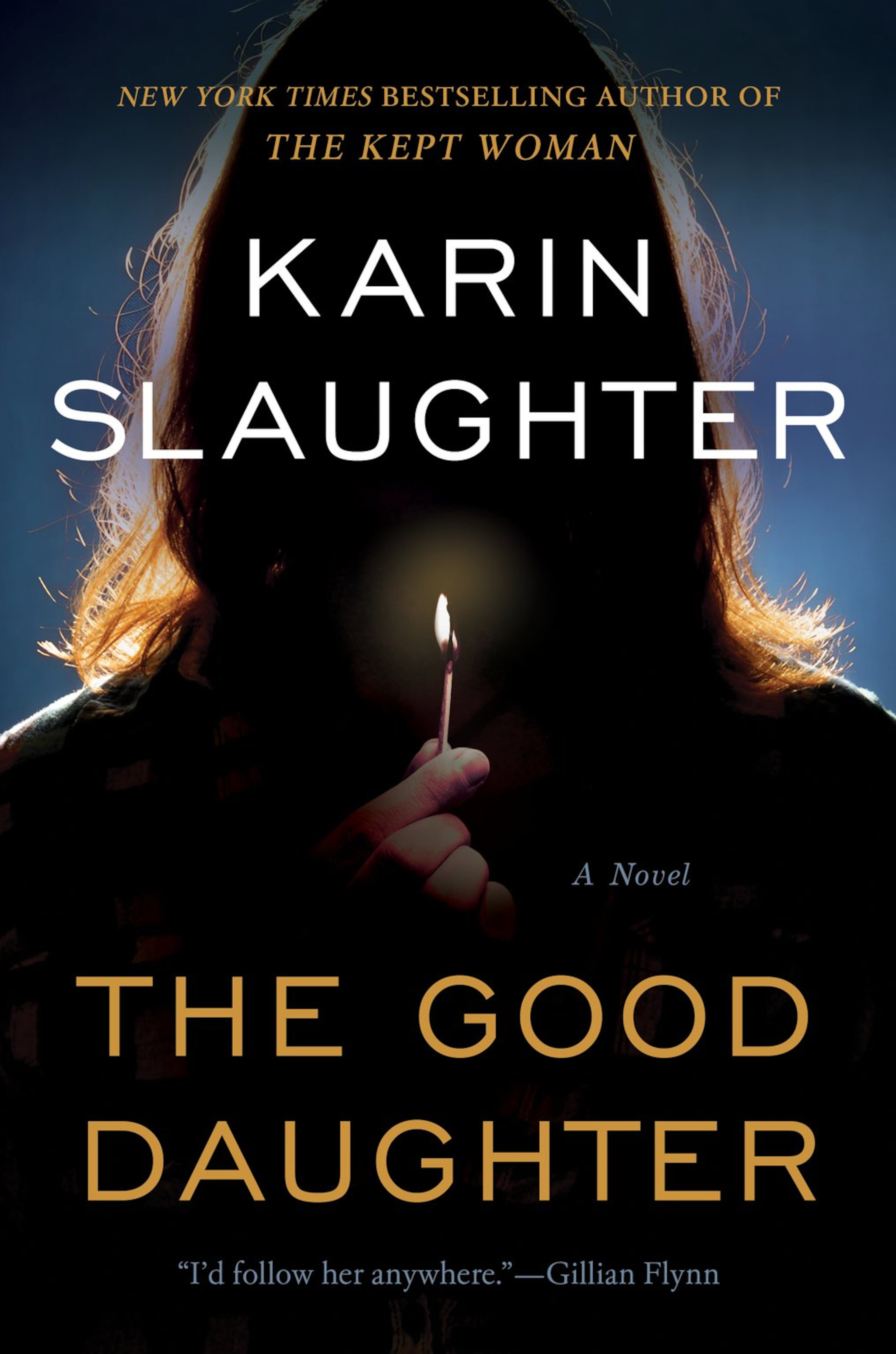‘The Good Daughter’ is ‘something different’ from author Karin Slaughter

What to do if your name’s Karin Slaughter?
If you’ve got the goods, you turn to a life of crime — concocting, crafting and churning out intense crime-thriller fiction, that is.
If you’ve got the goods to the tune of 35 million books sold in some 120 countries, the heat is always on. You’ve signed up to deliver a winner every year. That requires utter solitude, so you hunker down for weeks at a time in your cabin up in Blue Ridge. You write in 10-, 12-, even 15-hour bursts. You stay in your pajamas, because no one’s there and your mind’s spilling over with story threads and plot twists that must get onto the page.
You don’t even pause for nuisances like cooking. That’s because your dad, Howard, sneaks up to your doorstep every two or three days, leaving soup and cornbread for you. (It’s really all that a girl needs – and thanks, Dad.)
When it's time for your 17th book, it's time to rhyme the title with that killer last name. "The Good Daughter" is the latest from Karin Slaughter. Many of her previous hits have one-word titles: "Triptych," "Fractured," "Broken," "Unseen," "Faithless."
Raised in Jonesboro and an intown Atlanta resident for 25 years, Slaughter has produced a new thriller every year since 2001, when her debut, "Blindsighted," became an international best-seller. She's best known for two Georgia-set series: her Grant County crime titles and the Atlanta-centric Will Trent detective books. More recently, she's produced stand-alone best-sellers: "Cop Town" (2014) and "Pretty Girls" (2015); there are plans to develop a "Cop Town" series.

“The Good Daughter” is set in Pikeville, a fictional North Georgia town. (“It’s not Blue Ridge,” says the author.) Twenty-eight years ago, in 1989, a horrific crime happened there, leaving a family forever fractured. Fast-forward to the present day, when another terrible crime occurs in Pikeville.
Slaughter’s complex narrative occasionally pivots readers back to the 1989 crime, which involved sisters, ages 13 and 15 then, who later became lawyers and parted ways. Readers are kept in high suspense as the author smoothly alternates points of view and shrewdly doles out the what-really-happened details of both crimes.
Now in their 40s, the sisters (nicknamed Sam and Charlie) also become linked to the present-day crime. They are daughters of the colorful Rusty Quinn, longtime defense attorney, widely despised because “there was not one low-life alleged criminal in Pikeville” too bad for him to represent.
One of three sisters herself, Slaughter had only recently, in “Pretty Girls,” focused on sisters wrestling with a long-ago horror.
“I did wonder if I should do another book about sisters,” she says. “Then I thought, why worry about that if Jack Reacher (hero of Lee Child’s thriller series) is always in some small town kicking butt? I decided there was more to cover.”
She’s known as a bold storyteller with a hard edge — fearless when describing the gruesome details of unspeakable acts of violence. “The Good Daughter,” however, proves far less grisly than “Pretty Girls” or several other previous Slaughter books.
“Daughter” has more layers and nuance, less blood, fewer body parts sticking to the walls. It’s a legal quandary, a nonstop guessing game, a psychological page-turner involving broken, believable people burdened by the ugly past and dark secrets. Slaughter deftly manages not to make one sister more likable or sympathetic than the other.
“How the characters react is much more the focus than the actual crimes,” she says.
After she wrote “The Good Daughter’s” opening scene, Slaughter “saw the potential for kind of a Victorian novel. I wanted to talk about family, society, poverty, crime and punishment. From the beginning, the scope of this story felt very different from anything I’ve done before.”
“While I feel very comfortable in the crime genre, I love writing and knew I wanted to try something different. I wanted to challenge myself to weave in social issues, family issues and to kind of hold a mirror up to our society.”
In other news:
Evidence indicates success. In a coveted “starred” review of “Daughter” in Kirkus, a magazine that’s a gauge for booksellers, Slaughter is compared to her most influential literary hero, Flannery O’Connor, for her ability to use “horrific violence to evoke pity and terror.”
Back when ninth grade was part of the former Morrow Junior High, Slaughter’s English teacher told her she was a good writer but could be better. That teacher, Billie Ann Bennett Ward, gave Slaughter a copy of O’Connor’s short story collection.
“What I love and admire most about Flannery O’Connor is that she loved the South, warts and all,” Slaughter says. “She loved writing about bad things and how bad and unspeakable things could bring out the best or the worst in people.
“When I read her stories as a kid, all I thought about was the violence and the humor. But then I studied her. She used those things as a way to delve into character: to write with a purpose, to use your words to open up a broader conversation about society.”
Slaughter kept in touch with Ward, who taught in Clayton County schools for 30 years and died of cancer at age 66 two years ago. “She was a great lady, very important to me. She was the second person after my dad who I told about my first book deal.”
BOOK SIGNING
“The Good Daughter,” by Karin Slaughter, William Morrow, 511 pages, $27.99
Slaughter will speak and sign books at 2 p.m. Saturday at FoxTale Book Shoppe, 105 E. Main St., Woodstock. Admission is book purchase from FoxTale. 770-516-9989, www.foxtalebookshoppe.com/events.

